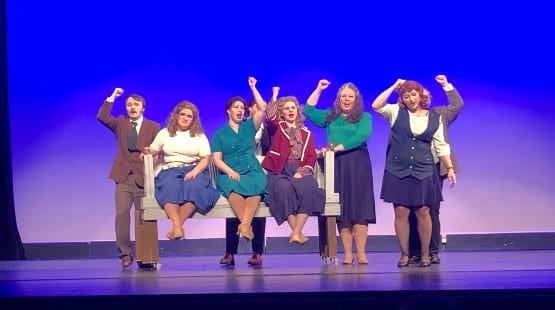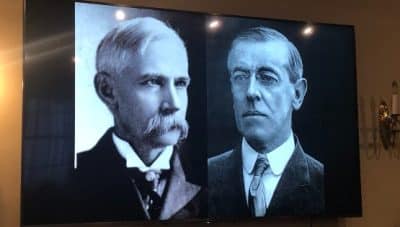
Two Tuskegee Airmen from Tidewater will tell their stories–the story of the first African American fighter pilots, aircraft mechanics, and ground crews in U.S. history, their struggle to be allowed to serve their country and their experiences in training and in World War II. The program also will remember two local Tuskegee Airmen, William Green Jr. and Ralph Davis. The event is presented by the Augusta County Historical Society and co-sponsored by the City of Staunton.
The activities begin at 1:30 p.m. with World War II music by the Stonewall Brigade Band, while the formal ceremonies begin at 2 p.m. with the presentation of the Colors of the United States of America by the Thomas-Fields Post of the Veterans of Foreign Wars. Ernest Holley will offer a patriotic song. The program will follow, and refreshments will end the afternoon.
Grant S. Williams enlisted after completing high school and was trained at Tuskegee, Ala., the base where African American pilots were schooled. He served with the 96th Air Service Group during World War II. Recalled to duty during the Korean War, Williams served as an administrator for 24 more years.
Harry Quinton was a licensed aircraft mechanic even before he enlisted in the Air Corps, but faced extreme discrimination under a commander who wanted nothing to do with black soldiers. Things changed when the war in Europe ended. A black commander was put in charge of his base to prepare his soldiers for the war in Asia. The dropping of the atomic bomb ended the war before the company was shipped out.
From the American Revolution onward, black American soldiers fought for their country or region while also fighting enslavement, discrimination, and segregation, all because they were black. As late as World War I, blacks were believed to be mentally unfit to fly airplanes, even if they had earned pilot’s licenses and accumulated years of flying experience before enlisting in the Army Air Force.
When decades of anti-discrimination pressure finally led Congress in 1939 to appropriate funds specifically for training African American pilots, the War Department allocated the resources to civilian flight training schools, such as the one at historically black Tuskegee Institute in Alabama.
It was not until March 1941 that the 99th Pursuit Squadron was activated at Chanute Field in Rantoul, Ill. It was America’s first ever African American flying unit. The unit’s aircraft mechanics and support personnel continued to train at Chanute, while pilots trained at Tuskegee. Collectively, they became known as the Tuskegee Airmen.
Ralph Davis was born in East Providence, R.I., in 1915. He fell in love with airplanes as a youth and earned a private pilot’s license by the time he was 16. Enlisting in the Army Air Force just weeks after his 18th birthday, he aimed to use his skills as an army pilot. But he had neither years of flying experience nor two years of college. One or the other was required of African American pilot candidates. Davis instead became an expert aircraft mechanic, was transferred to Tuskegee, and spent the rest of the war maintaining airplanes, earning the pilots’ trust, and training other mechanics. While on leave he met Mary Tate of Staunton and married her with his customary promptness. At the end of the war the couple made their home here. Their son now lives in her family’s home of several generations.
William Green, Jr. was a Staunton native. He graduated in July 1943 from flight school at Tuskegee, where he is likely to have known Davis. The following December he was deployed with the 302nd Fighter Squadron to Italy, where he flew bomber escort missions, engaging in dogfights with more nimble enemy aircraft who aimed to shoot down the lumbering bombers. Shot down himself over Hungary, Green was collected by Marshal Tito’s Yugoslav Partisans, assisted air drops to their widespread units, and eventually managed to return to his unit. His service is recognized by a statue in front of the Armory in Gypsy Hill Park.
The public is cordially invited to participate in this remembrance of the Tuskegee Airmen. Admission is free. A freewill offering will be taken, to benefit Tuskegee Airmen scholarships.










